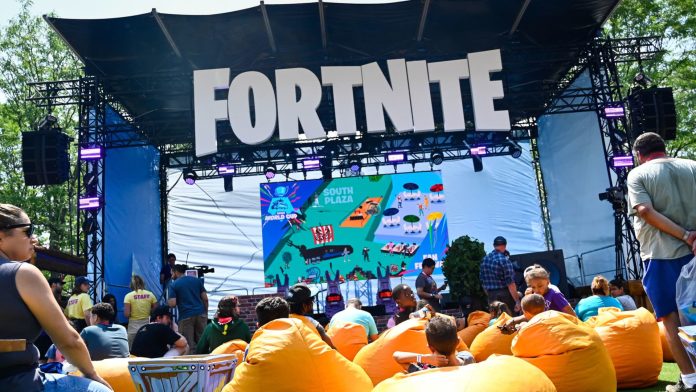[ad_1]
General view of the main stage during the Fortnite World Cup Finals e-sports event at Arthur Ashe Stadium, Flushing, New York, July 26, 2019.
Catalina Fragoso | USA TODAY Sports | Reuters
Epic Games, the developer and publisher of the video game Fornite, will pay $520 million in fines to settle with the FTC over violations of the Children’s Online Privacy Protection Act (COPPA).
The FTC had alleged that Epic paired children and teens “with strangers,” exposed them to “dangerous and psychologically traumatizing issues,” and failed to introduce adequate parental control systems.
“Protecting the public, and especially children, from online privacy invasions and dark patterns is a top priority for the Commission, and these enforcement actions make clear to businesses that the FTC is cracking down on these unlawful practices,” FTC chair Lina Khan said in a statement.
Epic will pay two fines, including a $245 million fine against Fortnite’s in-game store and refund systems, and another $275 million fine to address child privacy concerns.
At the core of the settlement was the FTC’s argument that Epic made deliberate decisions to appeal to children, citing “music, celebrity, and brand partnerships,” which included deals with Travis Scott, Ariana Grande, and an extensive collection of Fortnite-themed merchandise.
Despite the deliberate decision to market to children, the FTC said Epic failed to “cure,” or address, COPPA violations. The FTC called Epic’s attempts to address the harassment issue on-platform as “weak-willed,” noting that it took two years after launch for Epic to “finally [introduce] parental controls to the game.”
Epic allegedly failed to make decisions that would safeguard children and meet federal regulations, despite having research that indicated that some features, including voice chat, presented “a risk in terms of negative social behavior,” according to Epic internal reports cited by the FTC.
“All the while, kids have been bullied, threatened, and harassed, including sexually, through Fortnite,” the FTC complaint read.
The settlement is large, even by the FTC’s standards, but nowhere near the $5 billion fine that Meta, formerly known as Facebook, was ordered to pay in 2019.
Nonetheless, it represents a sizable rap for a company that collected $5.5 billion in profit between 2018 and 2019, according to court documents reviewed by The Verge.
“Of course, to enable parental controls, parents would first need to know they existed,” the FTC complaint noted. Only in 2019, “long after Epic obtained empirical evidence pointing to large numbers of Fortnite players” under the age of 13, did Epic introduce an age verification system.
“The laws have not changed, but their application has evolved and long-standing industry practices are no longer enough. We accepted this agreement because we want Epic to be at the forefront of consumer protection and provide the best experience for our players,” Epic said in a statement.
[ad_2]
Source link



